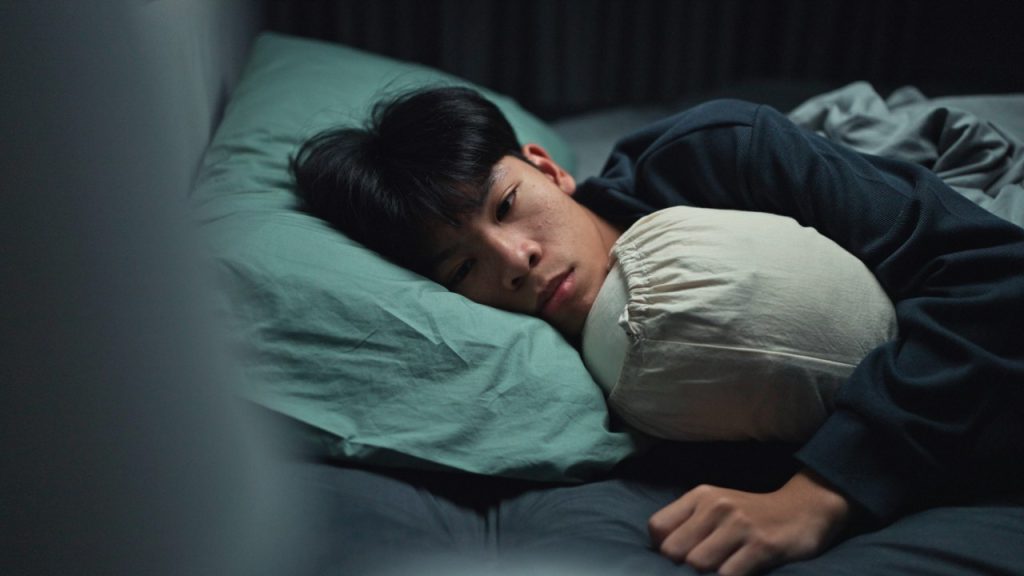Tossing and turning at night. Waking up exhausted. Dreading bedtime because you know sleep won’t come easily. If this sounds familiar, you’re not alone—and you’re not just dealing with poor sleep. For many people, insomnia is a chronic issue deeply intertwined with mental health challenges like anxiety, depression, PTSD, and bipolar disorder.
Cognitive Behavioral Therapy for Insomnia (CBT-I) is a clinically proven, drug-free treatment that helps people break the cycle of sleeplessness. At Lifeline Behavioral Health, we use this approach to empower clients to rebuild their sleep and, in turn, strengthen their mental and emotional resilience.
Understanding Insomnia as More Than a Sleep Problem
Insomnia isn’t just difficulty falling asleep. It’s a persistent disruption of your sleep pattern that affects your mood, cognition, relationships, and health. Chronic insomnia is defined by:
- Trouble falling asleep, staying asleep, or waking up too early
- Fatigue or low energy during the day
- Impaired concentration, irritability, or low motivation
- Sleep troubles occurring at least 3 nights per week for 3 months or longer
Sleep medications may offer short-term relief, but they don’t address the root causes—and often come with side effects or long-term dependency concerns. That’s where Cognitive Behavioral Therapy for Insomnia stands out.
What Is Cognitive Behavioral Therapy for Insomnia?
Cognitive Behavioral Therapy for Insomnia is a structured, evidence-based form of therapy designed to treat insomnia by identifying and changing the thoughts and behaviors that disrupt healthy sleep. It is recognized by organizations like the American Academy of Sleep Medicine and Mayo Clinic as the first-line treatment for chronic insomnia.

CBT-I typically includes these elements:
Cognitive restructuring
Replace anxious or unhelpful sleep-related thoughts (“I’ll never sleep again” or “If I don’t sleep, I’ll lose my job”) with balanced, realistic thinking.
Stimulus control
Rebuild the association between your bed and sleep—helping your brain re-learn that bed is for rest, not frustration or screen time.
Sleep restriction
Limit time spent in bed to match actual sleep time, gradually increasing it as sleep becomes more consistent.
Relaxation training
Teach the body how to wind down at night using methods like deep breathing, progressive muscle relaxation, and mindfulness.
Sleep hygiene education
Improve daily habits that affect sleep: caffeine intake, screen exposure, meal timing, and more.
Most Cognitive Behavioral Therapy for Insomnia programs last about 6–8 weeks, with noticeable improvements often emerging within the first few sessions.
How CBT-I Supports Mental Health Recovery
At Lifeline Behavioral Health, we recognize that sleep and mental health are closely intertwined. Poor sleep worsens mood regulation, increases stress, and undermines treatment progress. For individuals managing conditions like:
- Depression: Insomnia is both a symptom and a predictor. Treating insomnia can reduce depressive symptoms and prevent relapse.
- Anxiety disorders: CBT-I helps reduce the nighttime worry cycle that keeps many anxious individuals awake.
- PTSD: Structured sleep interventions provide a sense of safety and routine, which is critical for trauma recovery.
- Bipolar disorder: Improved sleep supports more stable mood cycles and lowers relapse risk.
Insomnia is not just a symptom of mental illness—it’s a contributor to it. That’s why treating insomnia with Cognitive Behavioral Therapy for Insomnia is often a necessary part of comprehensive mental health treatment.
Who Benefits from Cognitive Behavioral Therapy for Insomnia?
This approach can help people who:
- Have struggled with sleep for more than 3 months
- Find themselves lying in bed wide awake
- Use sleep medications, but want a more natural, lasting solution
- Feel that poor sleep is affecting their mental health recovery
- Experience anxiety at bedtime or racing thoughts at night
Even individuals with long-standing insomnia and co-occurring mental health conditions often see major improvements with CBT-I.
Lifeline’s Whole-Person Approach to Sleep and Mental Health
At Lifeline Behavioral Health, we believe in treating the full person—not just a diagnosis. Our outpatient mental health programs integrate Cognitive Behavioral Therapy for Insomnia alongside therapy for depression, anxiety, trauma, and more. We tailor each treatment plan to fit the individual, helping them not only sleep better but live better.
Whether you’re in individual therapy, group support, or a comprehensive outpatient program, our licensed professionals work with you to improve sleep, reduce distress, and create lasting change.
Reclaim Rest and Recovery Starts to Follow
If insomnia is robbing you of energy, stability, and peace of mind, you don’t have to keep suffering through it. Cognitive Behavioral Therapy for Insomnia is a proven path toward better nights and stronger days.
With the right support, restful sleep is possible—and it can transform your entire outlook on life.
Reach out to Lifeline Behavioral Health today to learn how Cognitive Behavioral Therapy for Insomnia can support your recovery. Let’s build a foundation for better sleep, better health, and renewed hope.


